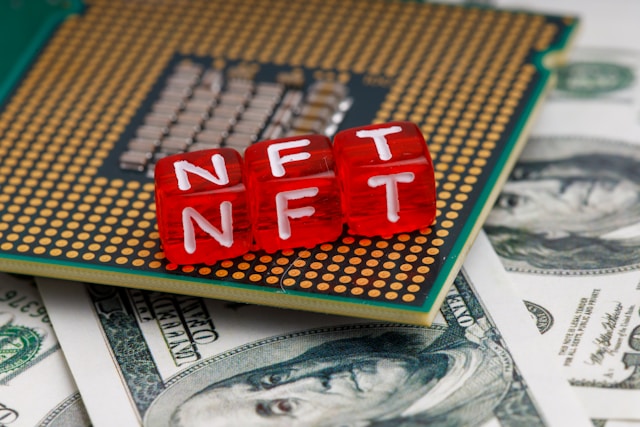
- October 19, 2023
- Personal Finance Advisor
- 0
Digital Real Estate is a relatively new concept that has emerged with the rise of the internet and digital technologies. It refers to the ownership and control of online spaces, which can take various forms such as websites, domain names, social media accounts, and even virtual reality spaces.
Just like physical real estate, digital real estate can be bought, sold, leased, and developed for profit. It can also be used to generate income through advertising, subscription fees, or e-commerce. The value of digital real estate is determined by factors such as traffic, revenue, growth potential, and strategic importance.
As the digital economy continues to grow, digital real estate is becoming an increasingly important asset class that offers unique opportunities for investment and wealth creation.

The Rise of Digital Real Estate: A Brief History
The rise of digital real estate can be traced back to the early days of the internet when savvy individuals began buying up domain names. This was the first form of digital real estate, as these domain names could be bought for a small fee and then sold for a profit.
As the internet evolved, so did the concept of digital real estate. Websites became a form of digital property, with their value determined by factors such as traffic, revenue, and potential for growth. More recently, the advent of virtual reality has given rise to a new type of digital real estate: virtual spaces.
These can be anything from virtual land in a video game to a digital storefront in a virtual shopping mall. The rise of digital real estate has been driven by the increasing value and importance of digital assets in our increasingly digital world.
Types of Digital Real Estate: Websites, Domain Names, and Virtual Spaces
There are various types of digital real estate. These primarily include websites, domain names, and virtual spaces. Websites are a common form of digital real estate, where the owner can generate revenue through advertising, selling products or services, or through subscription models.
Domain names, on the other hand, are unique addresses on the internet. They can be bought and sold for profit, especially if they are short, easy to remember, or contain popular keywords.
Lastly, virtual spaces refer to digital environments in video games or virtual reality platforms. These spaces can be purchased and monetized through various methods, such as virtual advertising or selling virtual goods.
As technology continues to evolve, the types of digital real estate are also expected to expand, offering new opportunities for investors.
How to Buy and Sell Digital Real Estate: A Comprehensive Guide
Buying and selling digital real estate involves a process similar to traditional real estate, but with its unique nuances.
The first step is identifying the type of digital property you want to invest in, be it websites, domain names, or virtual spaces. Research is crucial to understand the market value, potential profitability, and demand for the chosen digital asset.
Once you’ve identified a potential investment, negotiation follows. This involves agreeing on a price with the seller, often through a digital marketplace. After the transaction, transferring ownership of the digital property is usually done electronically.
Selling digital real estate follows a similar process. It’s essential to accurately value your digital asset, market it effectively, and negotiate
a fair price. Remember, understanding the legalities involved in digital transactions is crucial to protect your investment.

Investing in Digital Real Estate: Potential Returns and Risks
Digital real estate investment is a burgeoning field that offers significant potential returns. Websites, domain names, and virtual spaces can generate income through advertising, subscription fees, or sales of goods and services.
For instance, a well-optimized website with high traffic can earn substantial revenue from ad placements.
Similarly, a catchy domain name can be sold for a hefty price, while virtual spaces in popular online games or virtual reality platforms can be rented or sold for profit.
However, like any investment, digital real estate comes with its own set of risks. The digital landscape is highly volatile and subject to rapid changes. A website’s traffic can plummet due to algorithm updates or increased competition, domain names can lose their relevance, and virtual spaces can lose their appeal if the platform’s popularity wanes.
Therefore, thorough research and strategic planning are crucial for successful digital real estate investment.
Monetizing Your Digital Assets: Tips and Strategies
Monetizing your digital assets is a crucial aspect of digital real estate. It involves generating income from your digital properties, such as websites, domain names, or virtual spaces.
There are various strategies to monetize these assets. For websites, this could involve selling advertising space, offering premium content or services, or using affiliate marketing. Domain names can be monetized by selling them to interested parties or leasing them. Virtual spaces, particularly in popular virtual reality platforms, can be rented out or used to host paid events.
It’s important to understand the value of your digital assets and to keep up with market trends. Additionally, effective marketing can significantly increase the profitability of your digital real estate. Remember, just like physical real estate, the income potential of digital real estate largely depends on its location, quality, and demand.
Top Platforms and Marketplaces for Trading Digital Real Estate
Top platforms and marketplaces for trading digital real estate have become increasingly popular as the digital economy continues to grow. These platforms provide a space for buyers and sellers to connect, negotiate, and transact securely.
Some of the most popular platforms include Flippa, Sedo, and Afternic, which specialize in trading websites and domain names. For virtual real estate, platforms like Decentraland and Cryptovoxels are leading the way.
These platforms not only facilitate transactions but also provide tools and resources to help users evaluate digital properties. They often feature listings with detailed analytics, pricing history, and other relevant information.
As the digital real estate market continues to evolve, these platforms are expected to introduce more advanced features, such as AI-powered valuation tools and blockchain-based transaction systems, to enhance security and transparency.

The Role of Digital Real Estate in the Modern Economy
The role of digital real estate in the modern economy is becoming increasingly significant. As the digital world continues to expand, so does the demand for digital properties. Websites, domain names, and virtual spaces are now considered valuable assets, much like physical properties. They generate income through advertising, subscriptions, and sales, contributing to the digital economy’s growth.
Moreover, digital real estate offers opportunities for entrepreneurship and innovation. It allows individuals and businesses to create unique digital experiences, products, and services, driving technological advancement and economic development.
Furthermore, it democratizes wealth creation, as it is accessible to anyone with internet access, regardless of their location or financial status. However, like any other sector, it also poses risks and challenges, such as cybersecurity threats and regulatory issues.
Therefore, understanding and navigating the digital real estate landscape is crucial for economic actors in the digital age.
Case Studies: Successful Digital Real Estate Investments
The world of digital real estate has seen numerous success stories that highlight its potential as an investment avenue.
For instance, the domain name “CarInsurance.com” was sold for a staggering $49.7 million in 2010, demonstrating the immense value that can be attached to a popular domain.
Similarly, the website “PrivateJet.com” fetched $30.18 million in 2012. These examples underscore the lucrative returns that can be made from investing in the right digital properties.
In the realm of virtual reality, the game Decentraland has seen parcels of its virtual land being sold for up to $215,000.
These case studies serve as a testament to the potential of digital real estate, encouraging more investors to explore this emerging market. As technology continues to evolve, the value and demand for digital real estate are expected to grow, offering exciting opportunities for savvy investors.
Future Trends in Digital Real Estate: Predictions for 2024 and Beyond
As we look towards 2024 and beyond, several trends are emerging in the digital real estate landscape. The rise of virtual reality (VR) and augmented reality (AR) technologies is expected to significantly impact the market, with virtual spaces becoming a hot commodity.
Investors are increasingly recognizing the potential of these virtual properties, which can be used for a variety of purposes, from virtual offices to digital art galleries.
Additionally, the growing popularity of blockchain technology and cryptocurrencies is likely to influence the digital real estate market. Blockchain’s decentralized nature offers a secure and transparent platform for buying, selling, and owning digital properties. We may also see a rise in the use of smart contracts, which can automate the process of property transactions.
Lastly, as more businesses go digital, the demand for premium domain names and well-established websites is expected to increase.







































